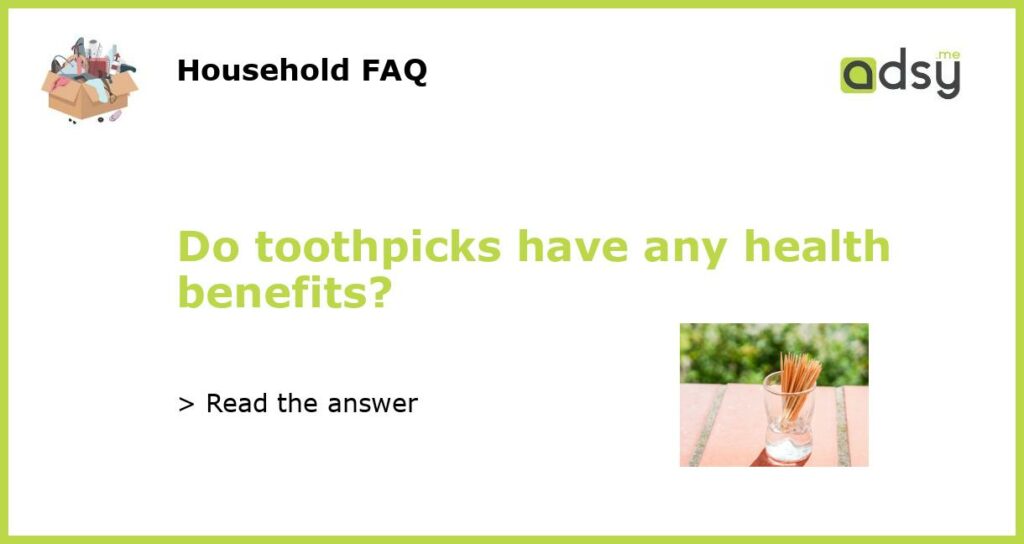Toothpicks: A Brief History and Introduction
Toothpicks have been used for thousands of years by different cultures around the world. In fact, evidence of toothpick use can be traced back to ancient civilizations such as the Egyptians and Romans. Initially made from materials like animal bones or wood, toothpicks have evolved to be made from more sustainable and hygienic materials today. While toothpicks are primarily used for removing food particles from between the teeth, many people wonder if they have any health benefits beyond that.
Oral Health Benefits of Using Toothpicks
Using toothpicks can actually provide some oral health benefits. When used correctly, toothpicks can aid in removing plaque and food debris that brushing and flossing may miss. This can help prevent the formation of cavities and gum disease. It is important to note that toothpicks should be used gently and with caution to avoid damaging the gums or enamel.
Promoting Good Digestion
Believe it or not, toothpicks can also have a positive impact on digestion. Chewing food thoroughly and ensuring that no food particles are left stuck between the teeth can aid in the efficient breakdown and absorption of nutrients. By using a toothpick to clean between the teeth after a meal, you can promote better digestion and prevent digestive discomfort.
Reducing Bad Breath
Another potential benefit of using toothpicks is the reduction of bad breath. Food particles that are left stuck between the teeth can contribute to unpleasant odors in the mouth. By using a toothpick to remove these particles, you can help eliminate the source of bad breath and promote fresher breath throughout the day.
The Importance of Proper Technique and Hygiene
While toothpicks can offer some health benefits, it is crucial to use them correctly and maintain good hygiene practices. Here are some important tips:
- Choose toothpicks made from safe materials like bamboo or plastic.
- Do not use excessive force or press too hard on the gums or between the teeth.
- Dispose of toothpicks after use and do not reuse them.
- Follow up toothpick use with thorough brushing and flossing to ensure complete oral hygiene.
In conclusion, while toothpicks might not be a cure-all for oral health issues, they do offer some benefits when used properly. Removing food particles and plaque from between the teeth can aid in preventing cavities and gum disease. It may also help with digestion and reducing bad breath. However, it is important to remember that toothpicks are not a substitute for regular brushing and flossing, and should be used in conjunction with a comprehensive oral hygiene routine.


![[1500 Count] Bamboo Wooden Toothpicks Wood Round Single-Points Tooth Picks](https://m.media-amazon.com/images/I/51iQ4iRG24L.jpg)



![[1500 Count] Bamboo Wooden Toothpicks Wood Round Double-Points Tooth Picks](https://m.media-amazon.com/images/I/51B9eVM-bWL.jpg)